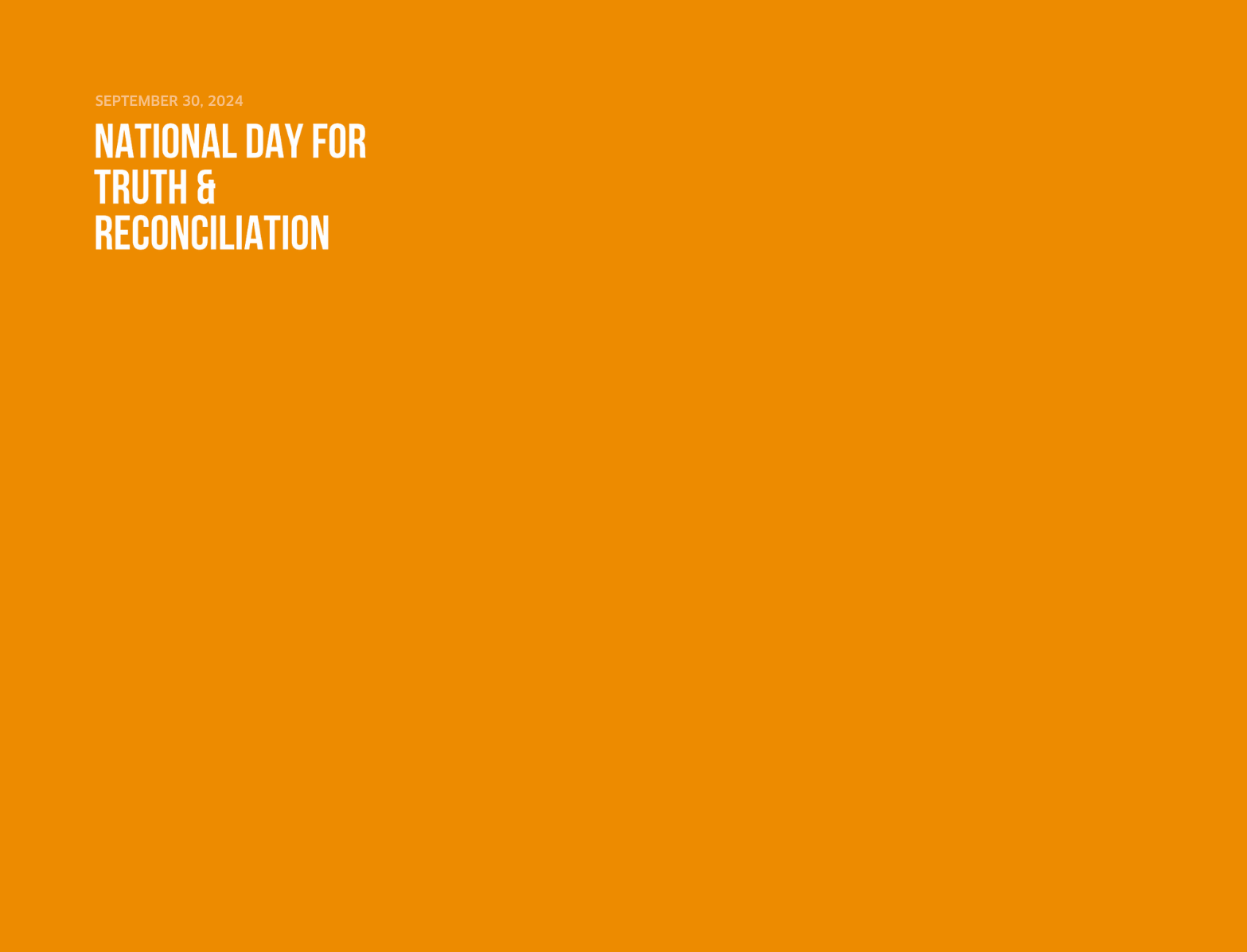September 30 is National Day for Truth and Reconciliation.
On this important day, we come together in the spirit of reconciliation to engage in deeper learning about the history and legacy of residential schools and its survivors in Canada. In recognition of National Day for Truth and Reconciliation, our Canadian studios will be closed on Monday, September 30. This closure provides us an opportunity to reflect on the actions we can take to foster understanding in our communities and beyond.
As we approach National Day for Truth and Reconciliation this year, there are many ways you can help to move reconciliation forward and create space for Indigenous voices, stories, and culture. DIALOG’s Indigenous Storytelling Team (IST) has compiled a list of suggested resources to aid in our learning journey.
What you can do
Wear Orange
We encourage you to wear orange throughout the week leading up to September 30, and on the day itself. By wearing orange, you are showing your shared commitment towards truth and reconciliation and honouring residential school survivors.
Start a Learning Journey
Explore the rich and diverse cultures, voices, experiences, and stories of Indigenous Peoples in Canada with a multitude of resources provided by the Government of Canada or your nearest city.
Check out these resources from our studio city locations:
Participate in a Lunch & Learn
Attend a Lunch & Learn webinar hosted by the National Centre for Truth and Reconciliation University of Manitoba from September 23 to 27. Each session provides an opportunity to learn directly from Indigenous knowledge keepers.
Recorded sessions are available online.
Attend an event
The Culture Days national organization has curated an extensive list of National Day for Truth and Reconciliation events across Canada. Find an event near you at culturedays.ca.
Read up
- The Orange Shirt Story, by Phyllis Webstad
- 21 Things You May Not Know About the Indian Act, by Bob Joseph
- Resistance and Renewal: Surviving the Indian Residential School, by Celia Haig-Brown
- They Called Me Number One, by Bev Sellars
- The Inconvenient Indian: A Curious Account of Native People in North America, by Thomas King
About DIALOG’s Indigenous Storytelling Team (IST)
This grassroots group came together with the common goal of helping DIALOG and DIALOGers become better allies, to create space for Indigenous stories to be heard, and to improve conversation about Indigenous perspectives and knowledge and how it applies to our work.
By gaining a foundation of knowledge for Indigenous-settler history we can build upon and learn more about Indigenous perspectives so we can continue to meaningfully improve the wellbeing of communities and the environment we all share, as allies together with Indigenous peoples.
